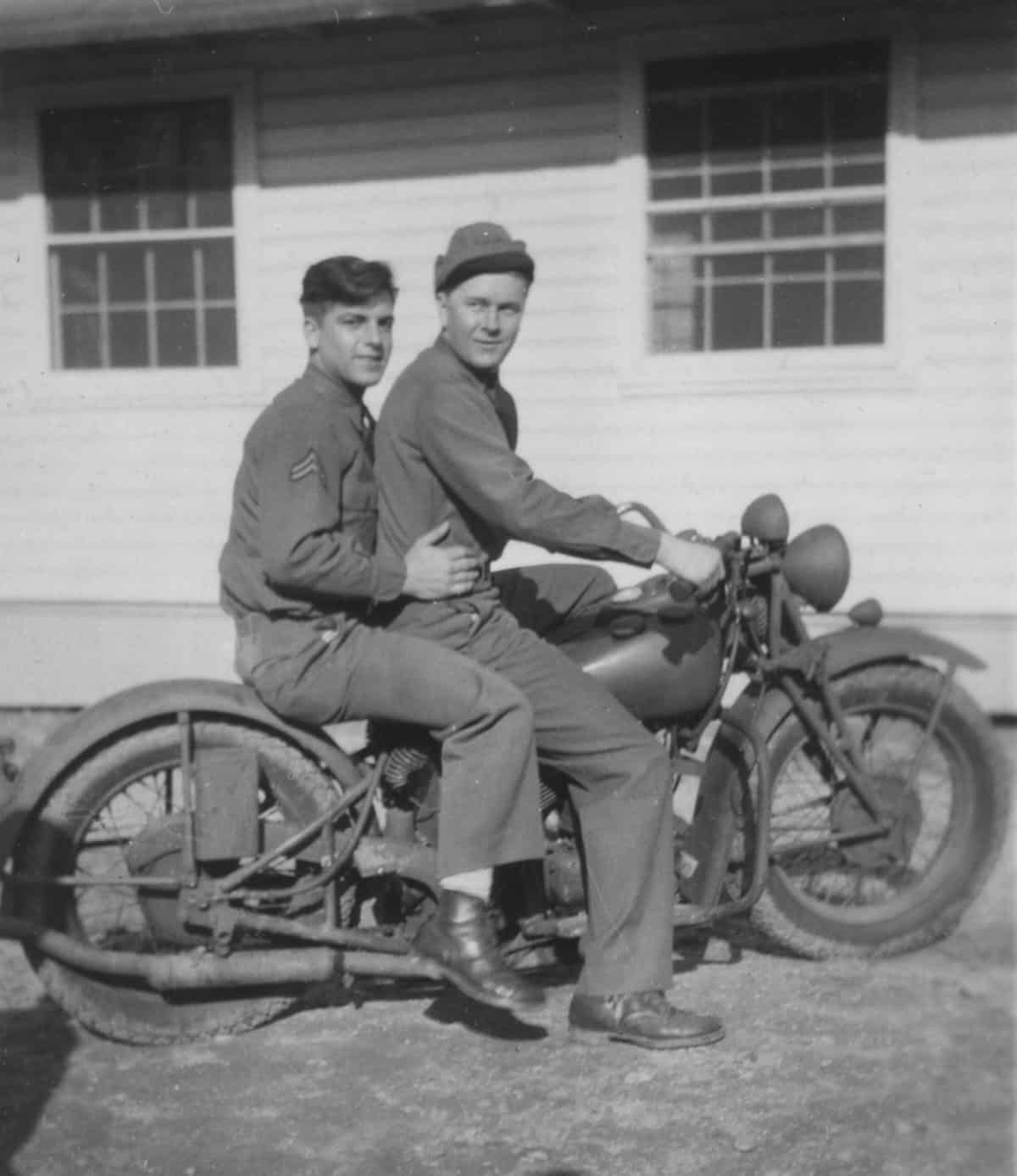
Here’s an appropriate article for Memorial Day. It is written by Richard Fenton of Springfield. Memorial Day is much more than a barbecue.
Memorial Day gives us a chance to pause, reflect, and be thankful for the freedom won by those who served and protected us. My thoughts go to childhood experiences watching my dad, Merrill Fenton, marching in the Chester Memorial Day Parade. Also remembered was my uncle, whom I never met. My dad and my uncle Alan Bykko grew up in Chester about a mile from each other. Dad was born in Chester in 1919 in the house at the fork-in-the-road formed by Route 11 and Blue Hill Road. During the depression his family moved to West Chester, to what is now called Fenton Road.
Alan was born in Foxhill, N.J. in 1920. His parents emigrated from Finland to Ellis Island, N.Y. His dad, my Ukki (grandfather), came from Oulu and arrived on the S.S. Baltic, May 30, 1914. My Mummo (grandmother) came from Iisalmi on the S.S. Mauretania Aug. 16, 1912. Ukki was born Juho Einar Pyykko, but changed his name to John Einar Bykko, for easier American pronunciation. The Bykko family finally moved to Andover Road, a short way from Route 11. My dad repeated a school year because of sickness, so he and Alan were in the same high school class in Chester. Alan must have been quite an athlete. Pictures show him doing handstands and diving off the “high” board at the Chester Pool. I know he rode a motorcycle with my dad, and I have one of his cross-country ski medals, probably from the winter events held at the Pinnacle.
Alan was inducted into the Army on Oct. 11, 1941 and trained with the engineers at Army Camps, state side, before going overseas. Alan served 14 months in Europe as a member of General Patten’s 135th Engineers attaining the rank of T/Sgt. (Technical Sargent). Noted by his Captain: “As Intelligence N.C.O (Non-commissioned Officer) of this battalion, Alan was often called upon and assigned difficult and important missions, which he handled confidentially and efficiently. In the absence of the Bn S-2 (Battalion Security Officer), Alan often took that officer’s place and, acting in his capacity, took complete charge of the entire section and assumed all the responsibility for its operation.”
Alan was the first man to enter the notorious Buchenwald concentration camp on April 11, 1945. Buchenwald, with its satellites, was one of the largest concentration camps within the German borders in 1937. That day in April, in anticipation of the liberation, prisoners stormed the watchtowers and took control of the camp. Later that afternoon, U.S. Liberation Forces entered the camp and found 21,000 people left there (the Nazis had moved many prisoners in anticipation of the liberating forces). It would not be until May 8–9, 1945 that the Instrument of Surrender is signed for Europe. May 8, 1945 would be designated V-E (Victory Europe) day.
June 1945 found Alan at Military R&R located in the Alps at Reid, Austria. Alan called it “our rest home.” He sent photos from that area to his mom. On one photo he writes: “Here is the fellows that I work with. Everyone is a good friend of mine. I am standing in the middle. I sure look skinny. So mommy, when Betty and I come home, you will have to fatten me up.” Alan married Betty in 1943. On June 17, 1945, Headquarters Company was preparing to move from Ried to Mark Schwabeu, Germany. Alan and his S-2 section left in advance of the company. Alan was driving a three-quarter-ton truck. About four miles out, on a narrow dirt road, a Hiney (German) truck crowded Alan off the road. The truck hit a guardrail made of railroad tracks. The guardrail upright ran through the radiator and floorboard pinning Alan to the seat. Even though Alan was rushed to the hospital in Ried, he died June 20, 1945. The Bykko family never really recovered from this loss.
I was born July 3, 1945 and was given the honor of carrying Alan’s name as part of my own. It is with some sorrow that I never met my uncle, but I am also proud Alan performed a meaningful part in helping preserve freedom and democracy for future generations.
This week’s old saying my mother used to say when one of us was standing between her and the TV: “You make a better door than you do a window.”